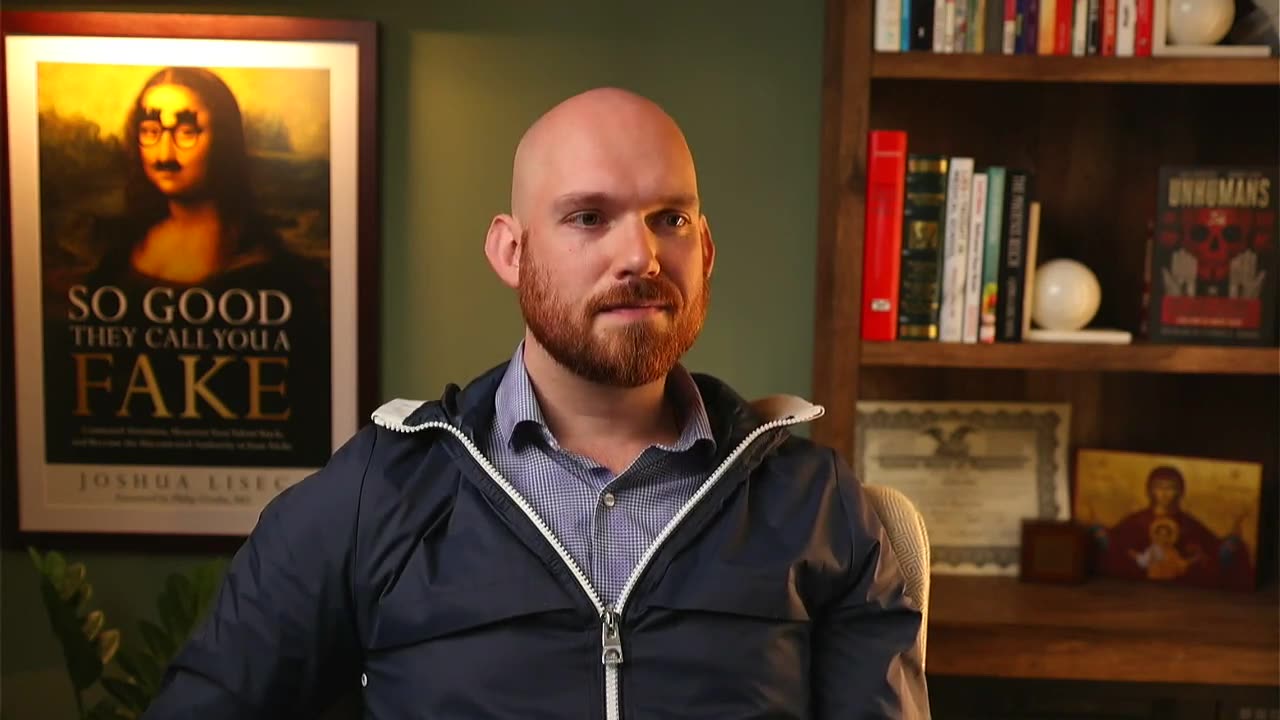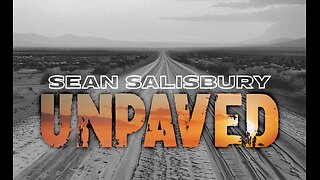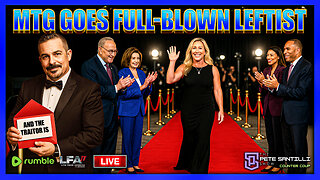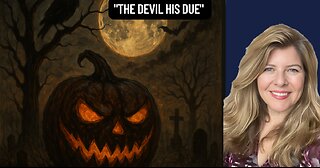Premium Only Content

Why We Needed That Studio Ghibli White House AI Meme — Daily Persuasion with Joshua Lisec Ep. 196
Would you like to write a persuasive BOOK? One that changes minds and influencers behavior for years to come? Start with a GOLDEN book idea. Let NEW YORK TIMES bestselling author Joshua Lisec teach you: https://lisecghostwriting.com/golden
ABOUT TODAY'S EPISODE:
When your enemies cling to ego and fantasy, sometimes the most humane response… is mockery.
In Episode 196 of Daily Persuasion with Joshua Lisec, titled “Why We Needed That Studio Ghibli White House AI Meme,” Lisec dissects the viral White House AI meme that has captivated—and enraged—millions. At over 52 million views (and counting), this studio Ghibli-style AI animation isn’t just a meme. It’s persuasion.
Welcome back to Daily Persuasion, where Joshua Lisec—certified hypnotist, New York Times bestselling author, and ghostwriter of 97 books—uses psychological insight and rhetorical mastery to teach persuasion techniques that actually work. In this lightning-fast yet fire-powered episode, Lisec takes on the outrage over the White House AI meme that featured a studio Ghibli-style AI depiction of a fentanyl trafficker being arrested and deported.
Cue the moral panic.
The woke right (aka diet woke, woke lite) leapt into the fray, crying, “This is not who we are!” and “Where are the principled conservatives?” But as Lisec points out, the outrage isn’t about justice—it’s about optics. And it proves why this studio Ghibli-inspired meme was not only appropriate, but necessary.
Here’s why.
In Lisec’s words: “Mercy to the guilty is cruelty to the innocent.” The White House AI meme didn’t depict an innocent grandmother. It portrayed a woman who—per the post’s context—was a fentanyl trafficker, tied to the drug killing more Americans under 45 than anything else. Studio Ghibli-style AI images made the story go viral. And that matters.
Why? Because memes are now persuasion psychology in action. They bypass logic and hit emotion. Lisec explains how the use of studio Ghibli-style AI was not random: it draws from the soft, emotive palette of Hayao Miyazaki Studio Ghibli classics—but juxtaposes it with the harsh truth of crime and consequences. That dissonance is the point.
It's emotional judo.
And it’s also a masterclass in persuasion techniques—something Lisec has built his career unpacking. By using familiar Studio Ghibli AI animation tropes, the meme grabbed attention, created empathy, and then delivered a hard truth. That’s the art of persuasive techniques in action—one of the most effective examples of persuasion in advertising and political messaging today.
If you’ve ever wondered how to persuade someone to do something—especially when they’re lost in delusion—Lisec explains how public mockery, done well, can break the reality-free bubble many ideological extremists live in. As Lisec puts it in Unhuman, the bestseller he co-authored, “Addicts of outrage and fear-based fantasy must hit rock bottom before they give up their anti-human ideology.” And sometimes, AI-generated animation free of traditional media control is the fastest route there.
In this episode, Lisec also explores:
• Why memes now move culture faster than mainstream media
• How studio Ghibli-style AI softens the blow while sharpening the point
• What persuasion examples we can learn from internet virality
• And how rhetorical jiu-jitsu beats high-horse moralizing every time
This isn’t just about a White House AI meme or a viral studio Ghibli-style AI image. It’s about using their language, their aesthetic, to expose their contradictions. When the left demands empathy for fentanyl traffickers while families bury loved ones, persuasion demands a stronger hand. That’s the lesson here. That’s what Lisec wants you to see.
So yes, we needed that Studio Ghibli White House AI meme—not in spite of the backlash, but because of it.
🔥 Watch Episode 196 now: “Why We Needed That Studio Ghibli White House AI Meme.”
Learn the strategies behind viral persuasion, weaponized aesthetics, and how to hit egos where it hurts—with questions, with visuals, with memes.
Because if you want to win the culture war, you’ll need more than facts.
You’ll need Lisec-level persuasion.
-
 9:36
9:36
Daily Persuasion with Joshua Lisec
9 days agoJohn Fetterman’s Risky Centrism, Israel v. Palestine Persuasion & Trump’s Fatherly Governance Ep 329
411 -
 LIVE
LIVE
Lara Logan
8 hours agoSHOTS FIRED: The Tyranny of Big Pharma Exposed with Dr. Sherri Tenpenny | EP 42 | Lara Logan
306 watching -
 LIVE
LIVE
Sean Unpaved
1 hour agoRavens' Resurrection Night: Lamar Buries Miami, NFL/CFB Spooky HC Shifts, & Kalshi's Week 9/10 Odds!
72 watching -
 LIVE
LIVE
Film Threat
1 day agoHALLOWEEN HORROR + BACK TO THE FUTURE RERELEASE + MORE REVIEWS | Film Threat Livecast
73 watching -
 1:21:16
1:21:16
Steven Crowder
4 hours ago10th Annual Halloween Spooktacular: Reacting to the 69 Gayest Horror Movies of All Time
156K106 -
 57:39
57:39
The Rubin Report
2 hours agoKamala Gets Visibly Angry as Her Disaster Interview Ends Her 2028 Election Chances
16K44 -
 LIVE
LIVE
Dr Disrespect
2 hours ago🔴LIVE - DR DISRESPECT - ARC RAIDERS - DANGEROUS ADVENTURES (LEVEL 12)
1,601 watching -
 LIVE
LIVE
LFA TV
16 hours agoLIVE & BREAKING NEWS! | FRIDAY 10/31/25
2,459 watching -
 LIVE
LIVE
The Mel K Show
2 hours agoHunters Become the Hunted: A Reckoning Is Finally Coming - 10/31/25
878 watching -
 1:02:41
1:02:41
Outspoken with Dr. Naomi Wolf
2 hours ago"The Devil His Due"
4.93K